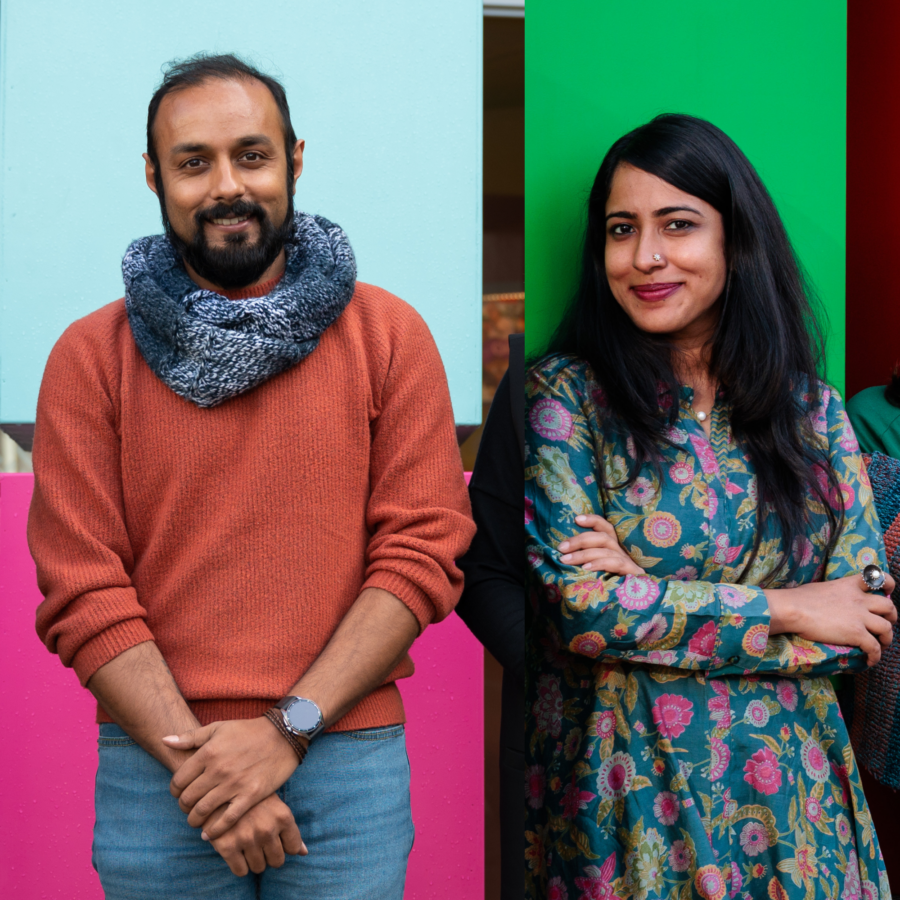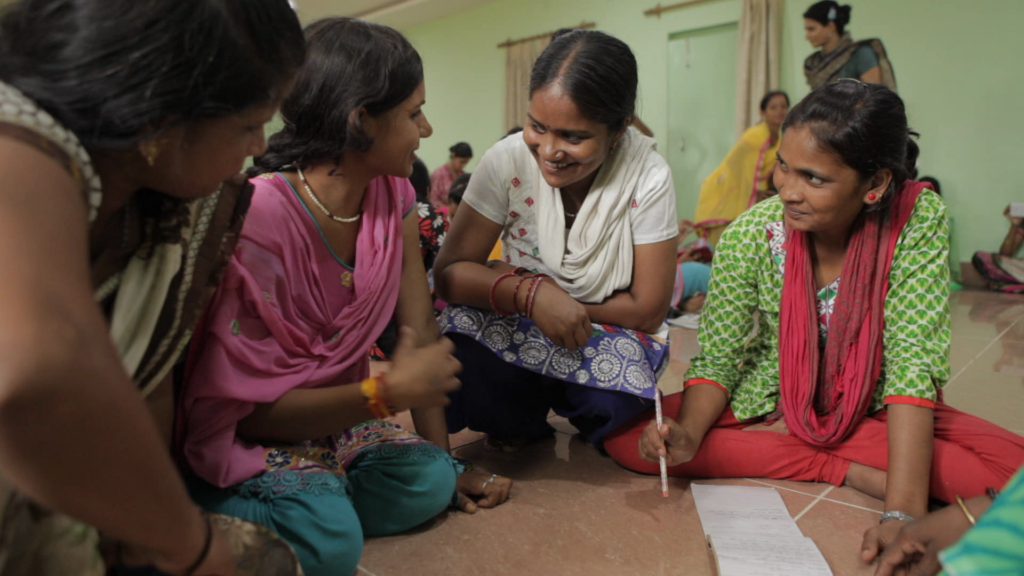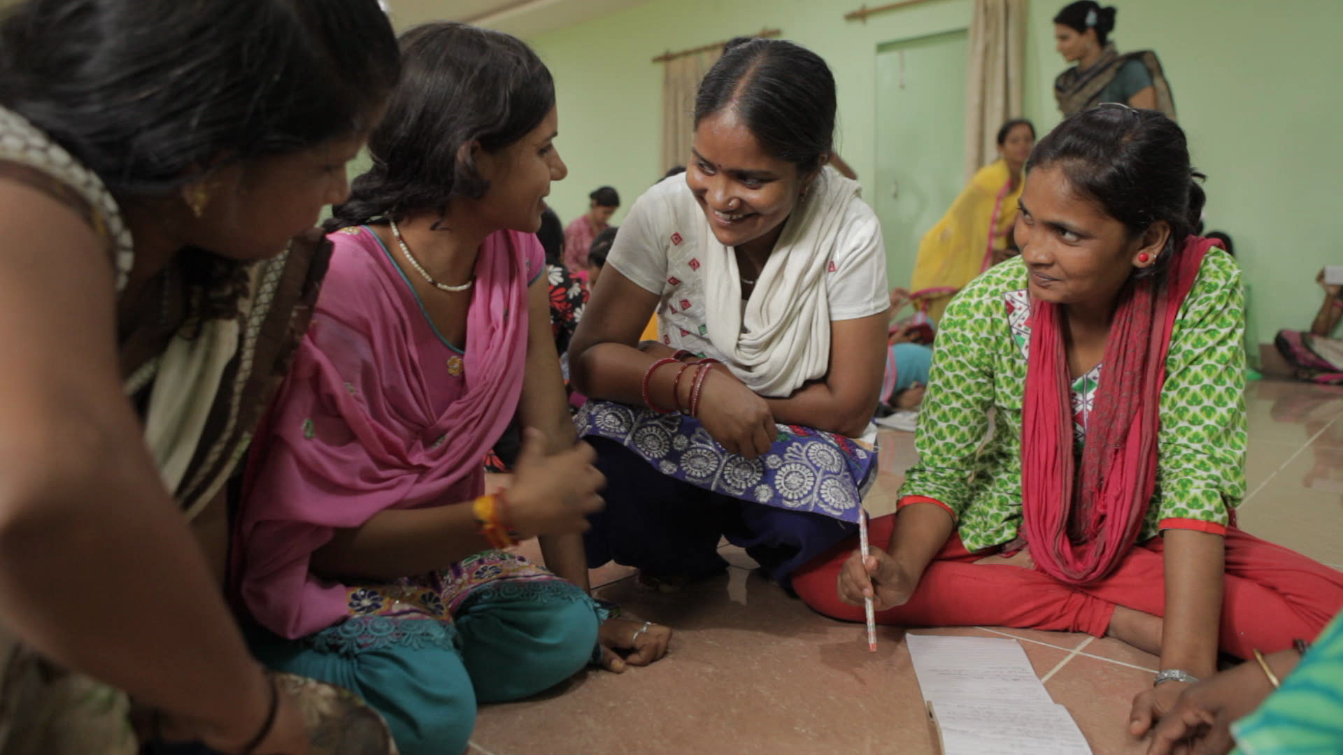Film as a defense mechanism
During the festival in The Hague, we interviewed Rintu Thomas and Sushmit Ghosh, the Oscar-nominated directors of Writing With Fire. We discussed their documentary's journey over its one-year festival circuit and how it subsequently reached its intended audience worldwide. 01 August, 2023
The documentary Writing With Fire follows the all-female staff of Khabar Lahariya, a newspaper led by Dalit women in India. Journalists Meera, Suneeta and Shyamkali come across resistance, suspicion and patronising as they report on India’s news from a feminist and Dalit perspective. The film was part of the Activist programme during the Movies that Matter Festival 2022.
The women from Khabar Lahariya, the activists, could not make it to the festival unfortunately. This is why directors Rintu and Sushmit participated in the Activist programme instead. Rintu recalls: “We met with a lot of organisations and had conversations about the key themes of the film, which are women’s voices, women’s role in democracy and the importance of free press and journalism in today’s times.” Part of the meetings were about raising awareness about the political situation in India, another part of it was getting connected to journalistic organisations like Free Press Unlimited, who have been wanting to set up an office in India.
It became like a superspreader, in a positive way. I don’t think this would have been possible without this programme.
Rintu: “After the festival we really wanted this film to be shared with human rights organisations and journalist organisations across the world. So, the Movies that Matter team suggested that the film would be a part of the embassy programme.” The Embassy programma is organised each year around International Human Rights Day on the 10th of December. Dutch embassies all around the world are offered a menu with human rights films by Movies that Matter to organise a screening around different themes. Last year the embassies could choose from six films on different topics. In the end, Writing With Fire was screened by different embassies all around the world, among which Malaysia, Perú, Egypt, Mozambique and Bangladesh. Rintu: “The greatest thing was the partnership with journalistic organisations in each of these countries. We heard from a journalist group in Sri Lanka watching the film and finding resonance, and then we got a request from them to show it in their newsrooms and in a university. It became like a superspreader, in a positive way. I don’t think this would have been possible without this programme.”

Stories can become enablers
“It was fantastic because all of a sudden our Twitter timeline just went crazy,” adds Sushmit. “We saw images from a screening in the Philippines in a full auditorium with very engaged students asking questions. That’s what you want, especially as an independent filmmaker. If you don’t have a studio of a streamer distributing the film to a global audience, you want to make sure that your film is seen beyond its one-year-festival-life in the industry. You want that it is used as a resource and that these stories can become enablers for other people and organisations on the ground.”
The film does not only draw attention to women’s rights within India, but also to the lack of free speech in the national media. This is also noticeable during our interview, when the directors contemplate on how they should frame the political situation in their country. Rintu: “The already shrunk space for independent voice is getting further stifled in India. So our strategy has been, let’s make the film, make sure it’s watched everywhere, and let the film do the talking. Through the film, Khabar Lahariya received incredible media amplification, we raised resources to strengthen their partnerships and expansion. So in many ways, the film has acted like an invisible amplifier and protective mechanism.” Sushmit: “I think it’s also about letting art do art’s work. It’s personal, professional and political – all these aspects of who we are and how we see the world. And at the same time, it is also about engaging audiences in a deep way.”
When your voice is consistently, systemically taken away from you, how do you find the right language to resist and create a parallel system of power for yourself and your community?
This is why it is also important to the couple to organise screenings with small community-based organisations in different parts of India. Rintu: “You just want to make sure that the right people are watching, and the right conversations are being had around the film. Because the film is also talking about the importance of having a voice. When your voice is consistently, systemically taken away from you, how do you find the right language to resist and create a parallel system of power for yourself and your community? The film uses the example of journalism in the life of these women. But I’m hoping the audience goes out with the idea; I’m not a journalist but I’m a mother, or I’m a community leader, or I’m a schoolteacher. How can I become the voice that I’m capable of. In the last two months, we’ve received notes from audiences in Kazakhstan, Ecuador, Tanzania about how profound the experience of watching the film has been for them.” Sushmit: “I think that’s the whole point of having cinema, music, art and literature in our Brechtian ‘dark times’. It is to embark on a journey together, to reflect and to get the audience to think about their place in the world and what difference they can make.”
-

Writing With Fire
Rintu Thomas, Sushmit Ghosh
Independence and bravery personified in the all-female staff of Khabar Lahariya, a newspaper run entirely by Dalit women. Journalists Meera, Suneeta and Shyamkali defy resistance, suspicion and patronising as they report on India’s news from a feminist and Dalit perspective. ‘In our region, being a journali...